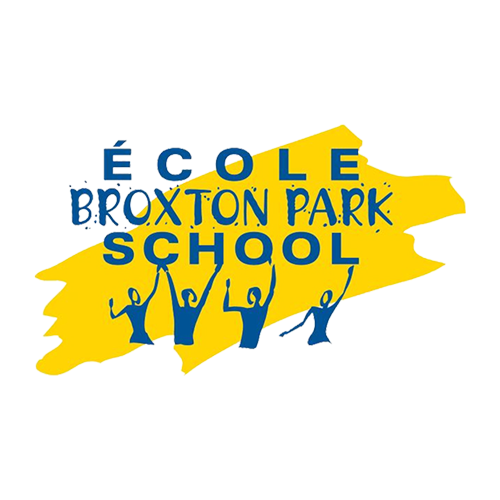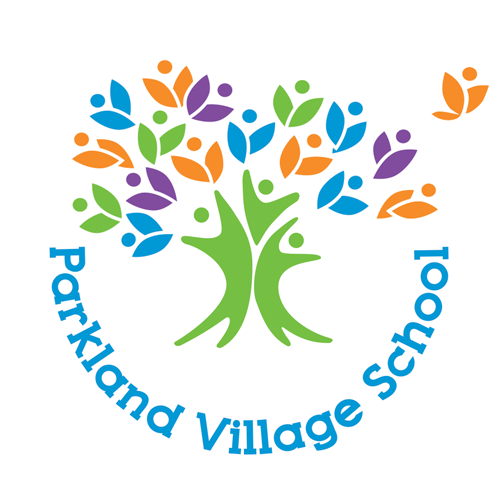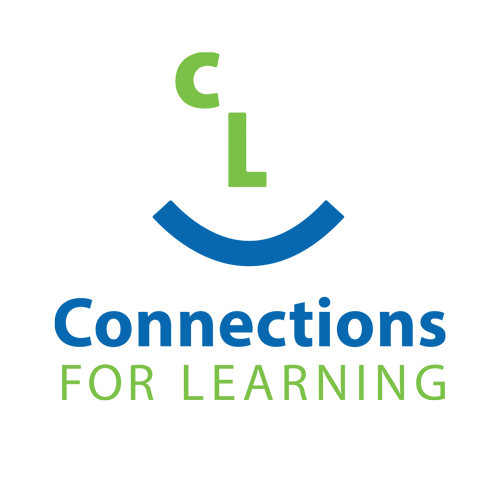AP 390: Community, Equity and Belonging
Organization & Culture
Background
The Superintendent demonstrates the belief that a continual progression toward equity, and the promotion of anti-racism, are essential components of a caring, respectful and safe school division. The Superintendent expects all staff to demonstrate, and ensure, that a sense of belonging, for all staff, students and community members, exists in all places.
As per the Education Act s.16(1)
all courses or programs of study and instructional materials used in a school must reflect the diverse nature and heritage of society in Alberta, promote understanding and respect for others and honour and respect the common values and beliefs of Albertans. (2) For greater certainty, the courses or programs of study and instructional materials referred to in subsection (1) must not promote or foster doctrines of racial or ethnic superiority or persecution, social change through violent action or disobedience of laws.
The Superintendent recognizes that personal and institutional racism and/or bias in all forms exists within the Division.
In order to work toward the elimination of all forms of bias and racism within the Division, the Superintendent promotes and expects that staff attend to the Mission of Parkland School Division; specifically, by
- Providing supportive learning environments;
- Providing meaningful experiences;
- Promoting healthy relationships;
- Creating opportunities to develop resilience; and
- Gaining diversity in perspectives.
Definitions
- Allyship: shall refer to any situation, or time, in which a person in a position of privilege supports, shows up for, amplifies the voices of, and otherwise works in solidarity with marginalized and oppressed groups.
- Anti-Racism: shall refer to the active process of identifying and eliminating racism, in order to change systems, organizational structures, policies and practices and attitudes, in promotion of equity.
- Belonging: shall refer to a shared sense of empowerment, where individuals are unrestrained from speaking up, from making changes, and from shifting the culture; it is the shared responsibility of those in leadership, and of the dominant social culture, to create conditions favourable to a sense of belonging.
- Bias: shall refer to any form of prejudice in favour of, or against, a person, or group, or thing, in comparison with, or action toward, any other person, group, or thing.
- Discrimination: shall refer to the unjust or prejudicial treatment of different categories of people on the grounds of ability, age, race, religion, sexual orientation, gender identity or expression
- Diversity: shall refer to the practice of including or involving individuals who are from a range of different social and/or cultural backgrounds, genders, and/or sexual orientations or expressions.
- Equity: shall refer to a state of fairness, in recognition that we do not all start from the same place, and we therefore must acknowledge and act to self-adjust in order to provide balance.
- Gender: shall broadly denote a range of identities, including but not limited to “male” and “female”, that do not correspond to an established binary concept of male and female; gender involves how a person identifies across a broad spectrum and a person may identify, at any point, within the spectrum or outside of it entirely.
- Inclusive Education: shall refer to a system that demonstrates behaviours and decisions that reflect valuing all students, and where all students experience the most appropriate learning environments and opportunities to best achieve success.
- LGBTQ2S+: shall refer to sexual orientations and/or gender identities that are not heterosexual or cisgender; including, but not limited to, lesbian, gay, bisexual, transgender, queer or questioning, and/or two-spirited.
- Privilege: shall refer to a special right, social advantage, benefit, or immunity granted or available only to a particular person or group.
- Race: shall refer to a concept used to group or categorize people according to a variety of distinctive visible characteristics, such as skin colour.
- Racism: shall refer to any prejudice, discrimination, or antagonism directed against a person or people on the basis of their membership in a particular racial or ethnic group.
- Resiliency: shall refer to the ability to maintain, or quickly return to, a state of well-being, even in the face of significant hardship, adversity or stress.
- Sexual Orientation: shall refer to the gender to which a person is attracted.
- Stereotype: shall refer to a widely held, but fixed and oversimplified, image or idea of a particular type of person or thing.
Procedures
Providing the conditions for a supportive learning environment:
The first step toward a culture of equity is to promote belonging and ensure all organizational variables contribute to an elimination of bias and/or racism.
The following procedures exist to ensure that Division staff and students are providing for a learning environment that is supportive for all:
1. Inclusion shall be considered to be the norm in every learning environment.
2. School community members shall have opportunities to share their cultural understandings and/or traditions with others.
3. Systems and processes shall exist to ensure learning is supported; including, but not limited to, the following actions:
3.1. The school facilities and visible artifacts shall demonstrate a supportive learning environment:
3.1.1. Schools and classrooms shall promote a sense of comfort and security;
3.1.2. Displays and school resources shall reflect the diversity of the school community (e.g., culture, interests, family structure, gender expression);
3.1.3. Evidence of all students’ learning and diversity is visible;
3.1.4. Signage and displays are positive, respectful and purposeful; and
3.1.5. All students shall have access to safe washrooms and change rooms that meet their individual needs and privacy concerns, regardless of the reason (e.g. medical, religious, cultural, gender identity, gender expression, etc.);
3.2. School administration shall ensure access to learning materials that are representative of students’ diversity, beliefs and culture;
3.2.1. School libraries shall provide for a diversity of literature to address topics of equity, including culturally diverse literature, anti-racism literature, and LGBTQS+ literature;
3.3. Individuals shall be provided with opportunities to make choices in learning in support of equity;
3.4. Staff and students shall use an individual’s chosen name and pronoun as individually requested;
3.5. An individual’s right to gender self-identification shall be respected and confidentially maintained; and
3.6. Supervision of students shall be consistent to ensure students’ physical, psychological and emotional safety.
4. Opportunities for employment shall be considered in full accordance with the following statement of Non-Discrimination:
Parkland School Division provides full consideration for all applicants for employment. No discriminatory actions shall prevent an applicant from access to, involvement with, or employment in, programs or activities on the basis of ability, age, race, religion, sexual orientation, gender identity or gender expression.
5. Opportunities for involvement in activities shall respect the same non-discriminatory processes as those for employment.
6. Staff and students shall be supported to organize and/or participate in activities that promote healthy relationships and positive mental health; including participation in the following events:
6.1. Orange Shirt Day (occurring on September 30th, or an instructional day immediately preceding September 30th);
6.2. National Bullying Awareness Week (occurring the third week of November);
6.3. Random Acts of Kindness Week (occurring the week of February 14th);
6.4. Pink Shirt Day (occurring on the last Wednesday in February);
6.5. Mental Health Awareness Week (the first week of May); and
6.6. Other special events within the school’s local community context.
Providing meaningful experiences and promoting safety:
Students are supported to be successful when instruction is effective and staff facilitate ongoing, mindfully-engaging activities that promote questioning and diverse conversations.
The following procedures exist to ensure that Division staff and students are providing for experiences that are safe, diverse, and meaningful:
7. All students shall be connected to at least one school staff member with whom the student can express any needs, interests or concerns.
8. Staff shall, wherever possible, provide for learning experiences that are meaningful and culturally diverse.
9. Schools shall provide course content that supports and addresses unique and intersectional issues.
10. Equity and diversity shall be modeled in learning exemplars.
11. Teachers shall review course content for bias and stereotypes while striving to include content that reflects diversity.
12. A variety of extracurricular activities shall be made available for students to learn and apply leadership skills.
13. Homophobic, sexist or racist language and/or comments about physical appearance or disabilities shall be responded to in ways that support a change in behaviour, and language.
Promoting healthy relationships:
Actions that promote healthy relationships provide a sense of security and stability, and contribute to a sense of belonging. Healthy, interpersonal relationships provide the foundation for equity and relationship skills form at an early age and develop continuously throughout each person’s lifetime.
The following procedures exist to ensure that Division staff and students are creating an environment for, and providing for, healthy relationships:
14. Staff shall actively promote strategies to eliminate bias and develop healthy, interpersonal relationships.
15. Staff shall encourage colleagues and students to promote and model healthy relationship skills; including
15.1. Staff members shall be professional, respectful and cordial in their interactions with one another;
15.2. Staff members shall be encouraged to participate in a variety of professional opportunities to mix together (e.g., across schools, grade divisions, grade assignments, subject areas, departments, etc.); and
15.3. Substitute teachers and casual support staff shall be treated with support, respect and courtesy.
16. Families’ concerns shall be treated with respect, dignity and sensitivity;
16.1. Staff shall respond to students’ and families’ questions and/or concerns within a reasonable timeframe; and
16.2. Diverse methods shall be utilized, as necessary, for school-to-home, and home-to-school communication (e.g., email, PowerSchool, telephone, etc.).
17. Students, staff and community members shall be greeted and welcomed when they enter a school or PSD site.
18. Staff and students shall encourage and welcome families’ participation in instructional and non-instructional school activities, as are deemed appropriate, to generate a sense of belonging.
19. Students shall be encouraged to share their ideas with peers and staff.
20. Students shall have access to opportunities to be supported though student or staff-led groups; this may include, and is not limited to, gay-straight or queer-straight alliances, peer support networks, mentorship, or Elder-in-residence programs.
Creating opportunities to develop resilience:
Actions that support the development of resilience construct a strong foundation for individuals who are then better able to meet the challenges they may face throughout life. Though the required effort to develop resilience increases with age, we can provide a learning environment that promotes skills to enable better outcomes.
The following procedures exist to ensure that Division staff and students are creating opportunities to develop resilience:
21. Staff shall consider and promote education and positive strategies for colleagues and students to develop resilience; including, but not limited to, the following actions:
21.1. Staff shall promote an understanding of protective factors that make a person resilient;
21.2. Staff shall encourage the development of strong social networks and/or peer groups through lessons that teach social-relational competencies;
21.3. Staff shall present strategies for students to learn from real-world examples of individual resilience;
21.4. Staff shall provide guidance and develop competencies for accessing appropriate peer support as required; and
21.5. Staff shall provide health education that promotes proper nutrition, sleep and exercise.
22. High expectations shall be set for all students to think critically and creatively and to work cooperatively.
23. Students shall be supported at appropriate levels and in the different ways they learn.
24. Expectations for positive behaviour shall respect diversity and nurture a positive sense of self.
25. Consequences for inappropriate behaviour shall focus on collaborative problem-solving, reconciliation and restorative practices; notably
25.1. Consequences shall consider each student’s age, maturity and individual circumstances; however
25.2. Consequences may include suspension and expulsion in accordance with the Education Act.
26. Opportunities shall be provided for students to learn and apply leadership skills.
27. Feedback shall be considerate of each student’s unique perspectives and diversity.
Gain diversity in perspectives:
Through a demonstrated appreciation of multiple points of view, the Division’s staff gain empathy and understanding of the differing backgrounds that contribute to the actions, thought processes and viewpoints of others.
The following procedures exist to ensure that Division staff and students gain diversity in perspectives:
28. Staff shall develop an increased awareness of the impact of personal biases, styles, preferences and perspectives.
29. Staff shall engage in anti-racism opportunities and professional development to generate an improved understanding of discriminatory issues that may impact student success and well-being.
30. Staff shall consider and promote strategies for colleagues and students to gain diversity in perspectives; including, but not limited to, the following actions:
30.1. Unique perspectives shall be heard and respected, with processes for disagreement in place in order to ensure and maintain respectful debate;
30.2. Matters related to inequalities should be discussed and addressed;
30.3. Methods and materials of communication shall be evaluated and reconsidered, as appropriate to do so, to ensure all matters are communicated through a considerate, equitable approach; and
30.4. Bullying behaviours shall be effectively addressed.
31. School administration shall ensure that each individual’s unique cultural and/or religious practices are respected and acknowledged.
32. Staff shall seek to develop an increased awareness of indicators that may help to identify students who would benefit from additional social, emotional, mental, physical or academic supports.
33. Principals and Directors shall increase staff capacity to support diverse needs and to inform and address safety and equity concerns or issues;
33.1. Services and supports for students shall be comprehensive and coordinated to support social, emotional and academic learning.























